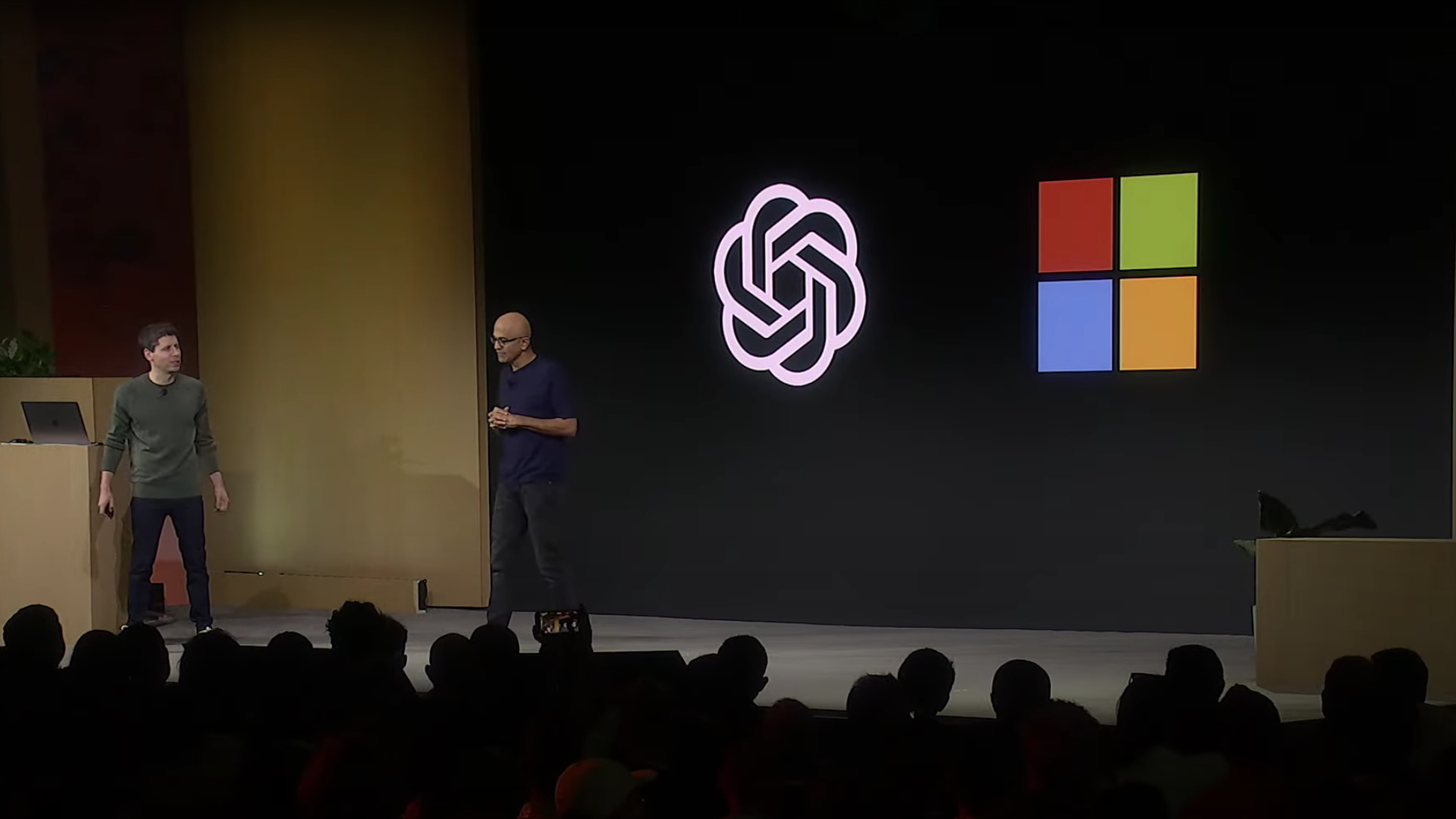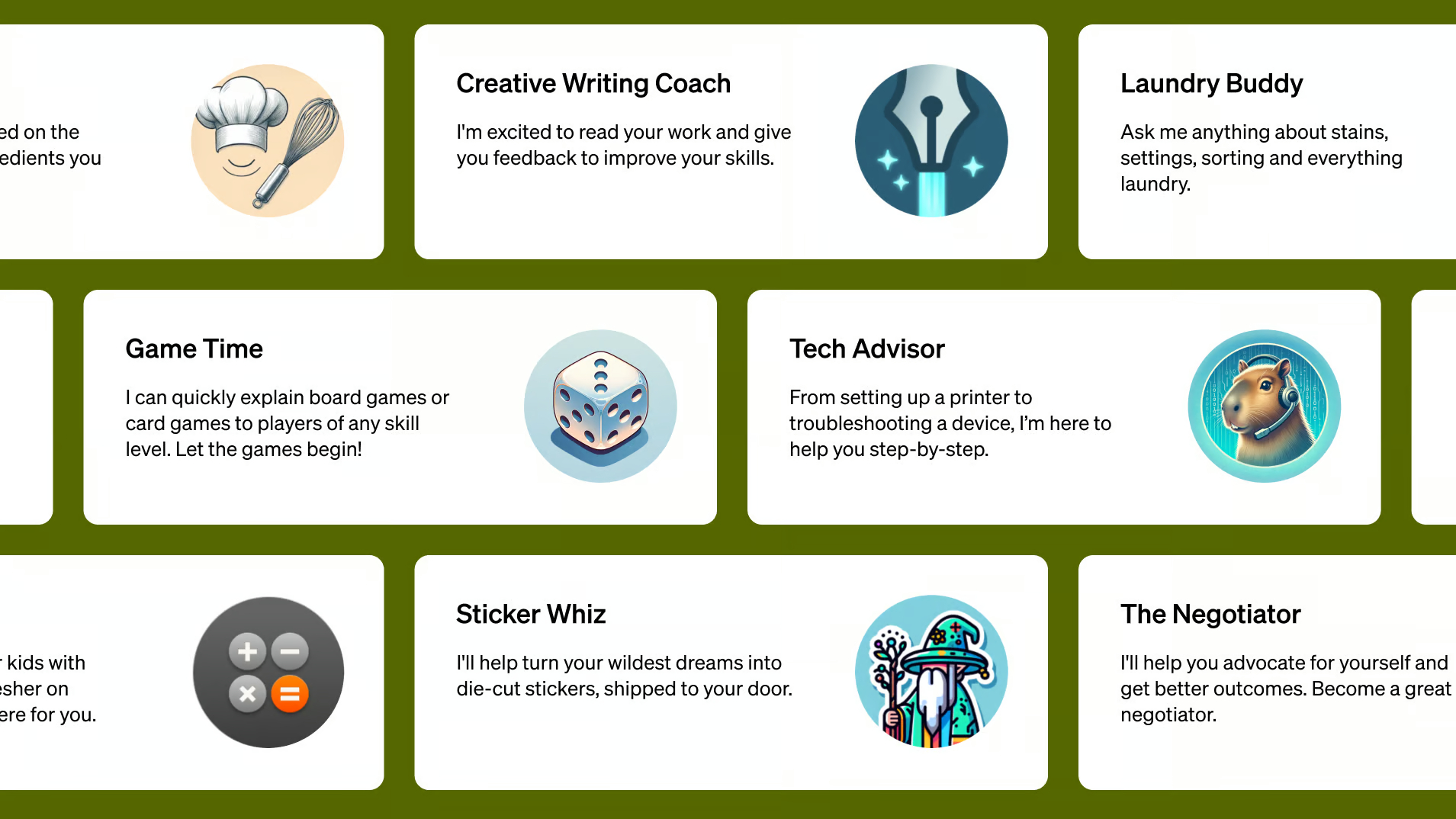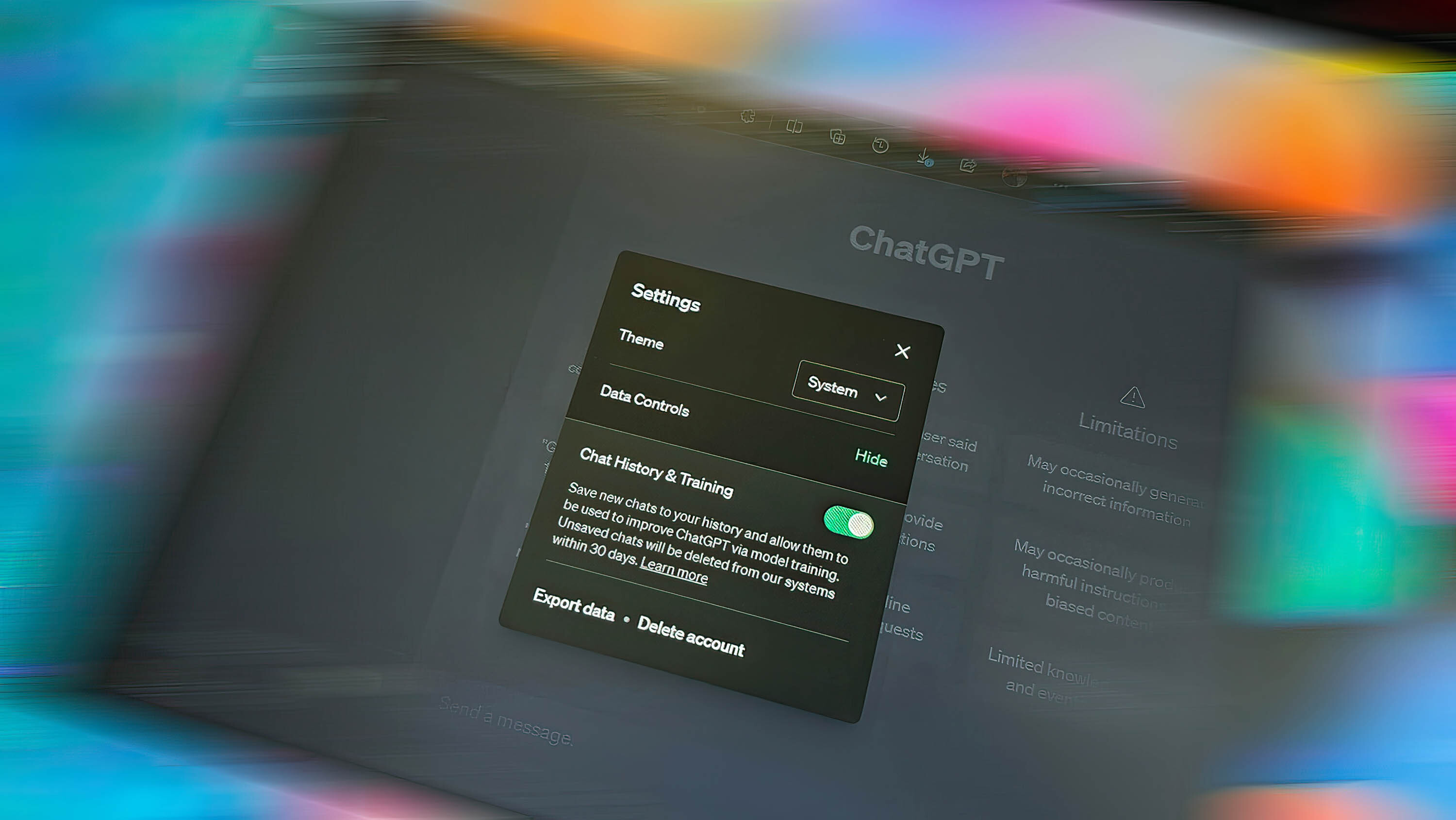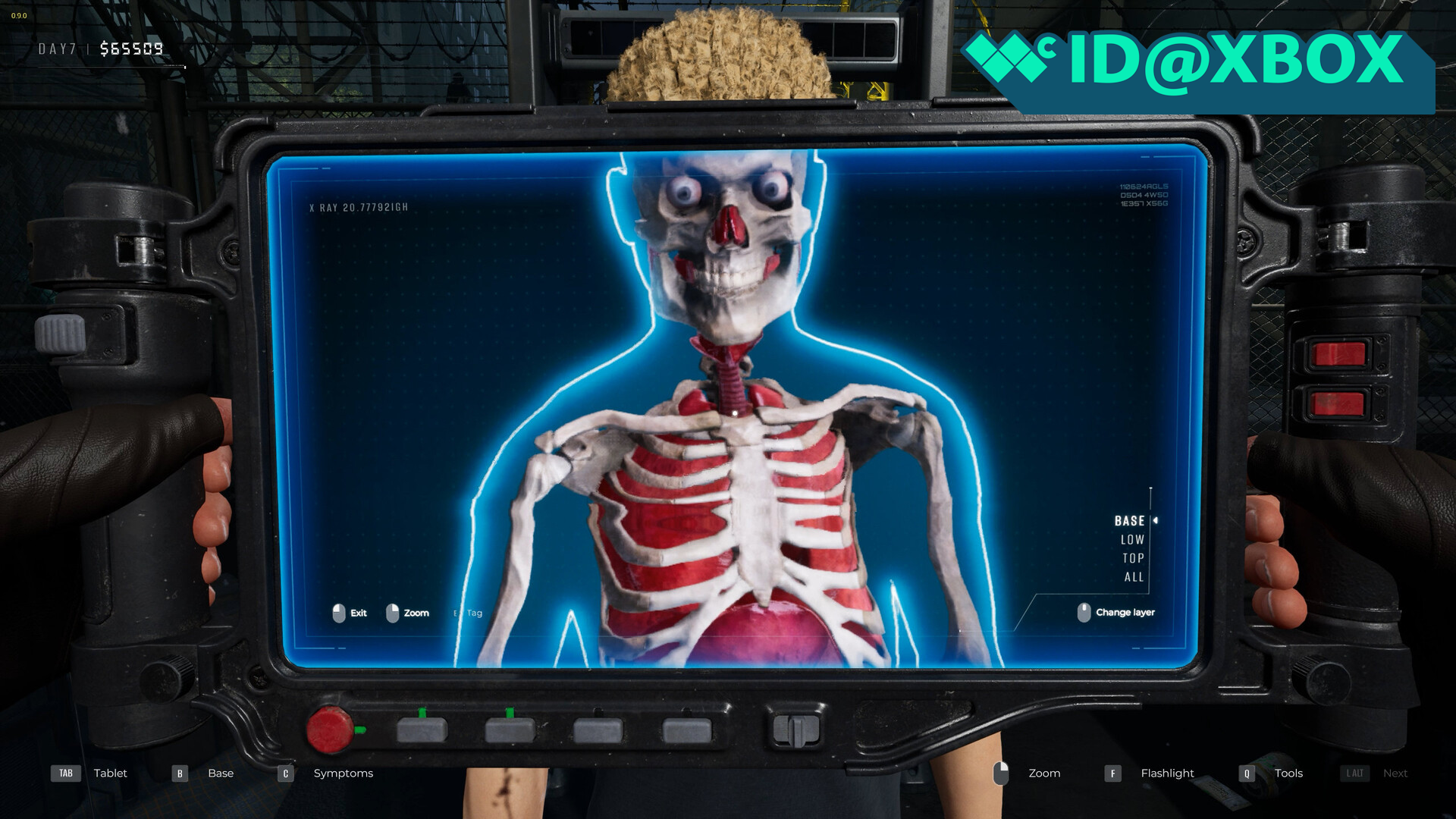OpenAI is juicing up ChatGPT for all, Satya Nadella makes a surprise appearance at Dev Day
GPT-4 and GPT-3.5 are getting bigger context windows, new features on the way

All the latest news, reviews, and guides for Windows and Xbox diehards.
You are now subscribed
Your newsletter sign-up was successful
What you need to know
- OpenAI has held its Dev Day conference and detailed improvements and new features heading to ChatGPT.
- Plus and free users will get to benefit from increased context window sizes.
- New Assistants API for developers to build their own agent-like experiences within their applications.
- Users will also be able to create their own custom GPT models.
- Prices for tokens on GPT-4 and GPT-3.5 are also now going to be lower, and starting with GPT-4 customers, rate limits will be higher.
- Microsoft CEO, Satya Nadella, made an appearance to talk up the relationship between the two companies.
OpenAI, the company behind ChatGPT, has been holding its own developer conference, detailing new features and improvements to its AI offering. A familiar face also dropped in, with an appearance from Microsoft CEO, Satya Nadella, to talk up the partnership between the two companies.
The big news, of course, from events such as this is what's new and getting better, and ChatGPT is definitely getting juiced up going forward.
The highlight is the announcement that GPT-4 is getting enhanced to become GPT-4 Turbo, with a whopping 128k context window. For context, OpenAI says this is the equivalent to around 300 pages of text in one go.
We released the first version of GPT-4 in March and made GPT-4 generally available to all developers in July. Today we’re launching a preview of the next generation of this model, GPT-4 Turbo. GPT-4 Turbo is more capable and has knowledge of world events up to April 2023. It has a 128k context window so it can fit the equivalent of more than 300 pages of text in a single prompt. We also optimized its performance so we are able to offer GPT-4 Turbo at a 3x cheaper price for input tokens and a 2x cheaper price for output tokens compared to GPT-4. GPT-4 Turbo is available for all paying developers to try by passing gpt-4-1106-preview in the API and we plan to release the stable production-ready model in the coming weeks.
OpenAI
GPT-4 on ChatGPT is still behind the paywalled Plus subscription, but free users will also be getting some upgrades. GPT-3.5 Turbo will also have an increased context window, up to 16k, as well as improved instruction following and the addition of the JSON mode.
JSON mode itself is also being improved, with a new API parameter that ensures ChatGPT can output correctly syntaxed JSON.
Developers are also going to be able to leverage the new Assistants API, enabling them to build their own GPT agents within their applications.
Today, we’re releasing the Assistants API, our first step towards helping developers build agent-like experiences within their own applications. An assistant is a purpose-built AI that has specific instructions, leverages extra knowledge, and can call models and tools to perform tasks. The new Assistants API provides new capabilities such as Code Interpreter and Retrieval as well as function calling to handle a lot of the heavy lifting that you previously had to do yourself and enable you to build high-quality AI apps.
OpenAI
Introducing GPTs - user created versions of ChatGPT

One of the more interesting announcements is the ability for users to create their own custom versions of ChatGPT. The idea behind this is that anyone can create their own, tailored version of ChatGPT to assist in a more specific way than the general client.
All the latest news, reviews, and guides for Windows and Xbox diehards.
We’re rolling out custom versions of ChatGPT that you can create for a specific purpose—called GPTs. GPTs are a new way for anyone to create a tailored version of ChatGPT to be more helpful in their daily life, at specific tasks, at work, or at home—and then share that creation with others. For example, GPTs can help you learn the rules to any board game, help teach your kids math, or design stickers. Anyone can easily build their own GPT—no coding is required. You can make them for yourself, just for your company’s internal use, or for everyone. Creating one is as easy as starting a conversation, giving it instructions and extra knowledge, and picking what it can do, like searching the web, making images or analyzing data. Try it out at chat.openai.com/create.
OpenAI
Power users have been craving a way to narrow down ChatGPTs focus to more specific tasks, and that's what OpenAI is delivering. It's entirely code-free, so quite literally anyone can try it, and it'll likely be a better way in for OpenAI in the enterprise space, too.
There will be example GPTs for Plus subscribers to try out, initially from the likes of Zapier and Canva, but as always, access is being rolled out gradually. This also applies to the GPT builder, so for the foreseeable, you'll have to be both a paid subscriber and wait your turn.
There is a ton of new goodies, mostly aimed at developers, so be sure to check out the full blog post to get the full run down.
ChatGPT going from strength to strength

ChatGPT has made huge waves this year among the raft of AI products that have come to market. Microsoft's own Bing Chat is fairly similar, using the GPT-4 model to power it, as well as OpenAI's image generation tech for its own Bing Image Creator.
Chatbots are fun, but the real question has been what's next. Making ChatGPT better is one thing, but lots still don't see how they can integrate it into their lives.
OpenAI's announcements all point towards ChatGPT being a platform rather than a singular product. We already have plugins, but by paying particular attention to what developers can do, making it cheaper, and improving aspects involving code syntax, OpenAI is pushing hard. The advancements this year alone are impressive, and with all the biggest players such as Google and Meta pushing their own products, the AI race is firmly on. For OpenAI, it's about staying in front, and what's been revealed this week is a good step in that direction.

Richard Devine is the Managing Editor at Windows Central with over a decade of experience. A former Project Manager and long-term tech addict, he joined Mobile Nations in 2011 and has been found in the past on Android Central as well as Windows Central. Currently, you'll find him steering the site's coverage of all manner of PC hardware and reviews. Find him on Mastodon at mstdn.social/@richdevine

